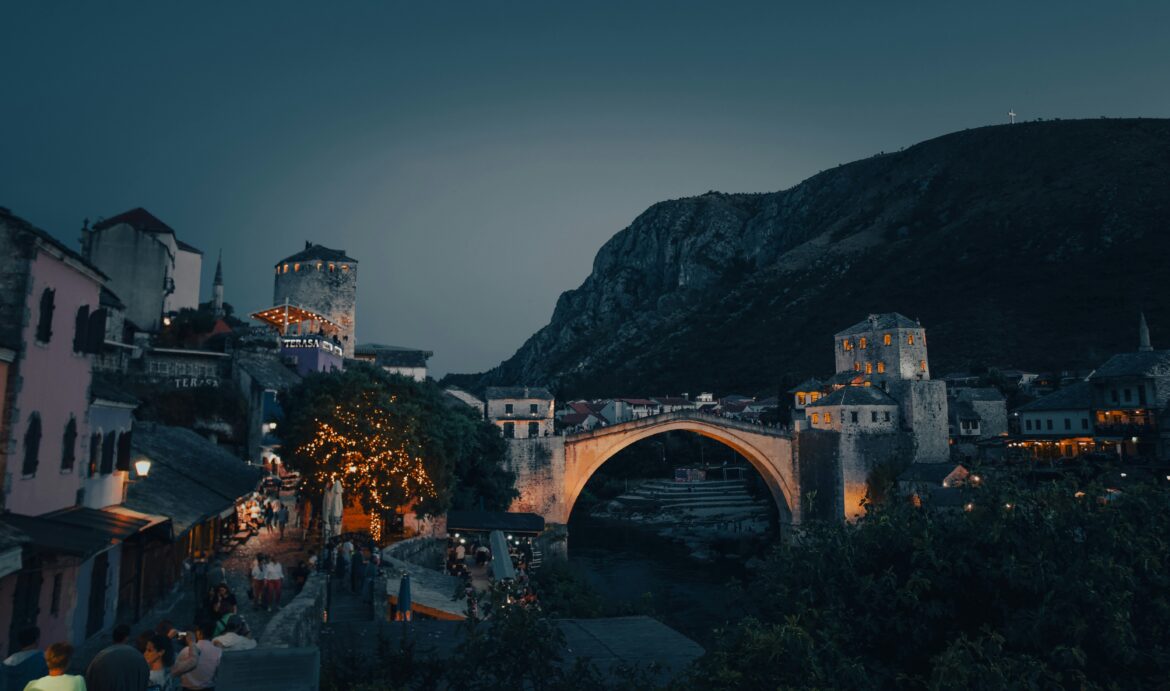Tea Kljajić on ethnic conflict in Bosnia & Herzegovina and its impact on young people.
There is a constant fear of war in my life. I was born and raised in a deeply divided and unstable society in Bosnia and Herzegovina, where resentment and bigotry abound. Young people have grown up constantly exposed to hateful rhetoric through political institutions, media outlets and even public spaces which are infiltrated with discriminatory messages based on ethnic or religious affiliation.
Bosnia and Herzegovina is believed to be in a state of ‘frozen conflict’ since the Dayton Peace Agreement ended the war on December 14, 1995. Since then, it has certainly struggled to become a self-sustaining and functioning country, because none of the three major ethnic groups, Serbs, Bosniaks, and Croats, seem to accept Bosnia and Herzegovina as it stands today. To be honest, I don’t much like my country as it stands today – not because of the ethnic situation or the three languages we speak, but because of the constant discourse of hatred and the shifting of responsibility from one institution to another. Bosnia and Herzegovina is currently a country that has thirteen ministries of health, where no one is responsible for anything as long as they are in the correct political party – regardless of ethnicity.
The consequences of war, unemployment and poverty have contributed to citizens becoming disillusioned, angry, and apathetic. In such circumstances, few of them believe that they are an important link in a society that can change for the better, and this is especially the case with young people who do not know how to deal with the past. The society we live in does not encourage citizens and young people to think and act openly and critically. On the contrary, it creates a political and economic climate in which individuals can easily become prone to hatred, aggression, and violence.
Youth identity – self and ‘others’
Young people in Bosnia and Herzegovina grow up in a context that encourages ethnic and nationalistic feelings and fears, hinders independent and critical thinking, and only reluctantly addresses and reacts to the concerns and prior ities that young people hold. We react to this unfavourable situation with a mixture of criticism, apathy, and disinterest. We are fed up with being caught up in the legacy of war and want to avoid ethnic, religious, and geographic labelling. We are interested in a life where there is no insecurity and economic constraints, where people are treated equally and where we can participate in decision-making. Political ideas and views of the world based on ethnic nationalism have no place in that vision.
Young people of different backgrounds have grown up with different ‘truths’ and different ‘histories.’ As a young child, I was basically convinced that there were aliens living across the country. In school, I learned that there is ‘us’ and ‘them’ and that while everyone should be respected it is still better for ‘us’ to stay away from ‘them.’ That was the ‘truth’ I grew up with. However, someone who grew up one hundred kilometres south of me was taught a different ‘history’ and had a different ‘truth.’ What particularly hurts is that in that other ‘truth’ I am the enemy. It hurts that in someone else’s ‘history’ I was an enemy even before I was even born. My place of birth determined whether the other half of the country saw me as a friend or a war criminal.
The past should not be the present
In the wake of one of Europe’s darkest wars, peace activists and experts have sought to introduce mechanisms to help prevent future violence. Bosnia and Herzegovina is a prime example of a place where hate speech can be truly dangerous; it serves as an alarming reminder of how important prevention truly is in order to avoid repeating history’s atrocities.
The nationally structured and outdated education system of Bosnia and Herzegovina teaches children values that do not contribute to social cohesion but ultimately destroy it. This system insists on authoritarian, collectivist values, teaches unhealthy and uninformed social norms, and encourages disorientation – perfect tools to create patriarchal and nationally-oriented future voters. Young people who were not alive during the war are still, unfortunately, susceptible to the blind acceptance of discourse that spreads hatred on a national basis.
Groups in Bosnian society are most often formed according to national and religious criteria. In our society, there is strong intra-group trust between members of one national group and strong mistrust towards members of other national or religious groups. If we add the continuous denial of war crimes, the promotion of separatist policies and the non-objective construction of reality, it will be partially easier for us to understand why, in our society, it is so easy for citizens to hate each other.
It is essential that young people in Bosnia and Herzegovina become more involved in their society. The education system needs to be reformed to foster critical thinking, constructive dialogue and mutual understanding between different groups. We must create an environment in which young people are free to shape their own futures and make decisions based on facts rather than on hate-filled rhetoric and prejudice. This is the only way to ensure that future generations will not be bound by the legacy of our past.
